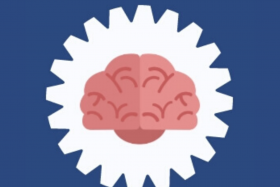The Science of Memory: 8 Ways to Remember Anything


Do you struggle to remember things? The name of a person you’ve only just met? A road you were supposed to meet a friend on?
Whether you’re studying for a test or trying to learn a new language, we’re going to help you out with these 8 remembrance techniques.
HOW MEMORY WORKS
While scientists know a lot about the brain, they’re still making new discoveries all the time. There’s still so much to discover and understand, but we do know that there are three stages/steps to memory processing, these are; Encoding, Storage & Recall.
ENCODING:
The first step to creating a memory is called encoding. When you notice an event or come across a piece of information, your brain consciously perceives sounds, images, feelings and other sensory details involved.
Example: If you take a trip to Las Vegas. Your memory of the trip is formed by your visual system (Seeing and noticing things around you related to Las Vegas), your auditory system (hearing the rings and bells of casinos etc.) and maybe even smell (scents are pumped into each casino).
Semantic encoding is when you attach a meaning or piece of factual knowledge to sensory input.
Example: If you associate the Bellagio in Vegas with its location on a map, you’re encoding the Bellagio with semantic memory.
STORAGE
Your neurons pass signals between one another about what you perceived. It’s this neural activity and the strength of these neuron connections that make a memory take root.
There are two kinds of memory: short-term and long-term. Short-term (Sometimes known as working memory) is like your brain’s notepad – it has limited storage capacity, almost like a camera roll or USB flash drive. Your brain temporarily stores information for a short while before dismissing it or transferring it to your long-term memory.

Example: A short term memory may be remembering what you want to order from a restaurant before placing your order. Once this information is used, it’s no longer needed and can be dismissed. While a long term memory might be learning to ride a bike.
RECALL
To retrieve a memory, your brain replays or revisits the nerve pathways created when the memory was formed. Recalling information regularly helps to strengthen these connections and your memories – which is why reviewing notes or flashcards helps you retain information. When a memory is recalled it’s not always an exact reproduction of the memory from the first time around, which is why some people can have false memories or their memory of an event can change over time.
THE LOCI TECHNIQUE
This method originally believed to have been developed in Ancient Greece around 2,500 years ago, and sometimes also known as “The Memory Palace” is more accessible to the average person than many people think.
The premise of the Loci Technique is simple; You have to try and associate each item you’re trying to remember with a specific image and a place. For this, you can use the rooms in your house and imagine the items lying around in rooms that feel most natural to you. Or choose somewhere you visit frequently, so long as the place has a personal meaning to you.
This technique is especially useful for remembering information that only needs to be recalled – as opposed to information that needs to be processed. Things like lists, birthdays, names and faces are examples of the information this technique would help you to remember.

Spend 30 minutes per day practising this technique, and eventually, you’ll be remembering lists of lists!
CHUNKING
Chunking is a method of grouping items together to make remembering them easier.
The reason this technique works is that it groups things based on semantic encoding – meaning things are put into groups according to a certain context or pattern.
For different people, this can mean different things. While one person might remember their shopping list alphabetically, others might remember it by types of food or the locations of the items as you walk around the store. It works best if you find what patterns feel most natural to you and stick to these patterns.
MNEMONICS
Mnemonics likely bring back memories of childhood for most people, as this is the first time you’ll have encountered them. Whether you were learning the names of planets or the days in each month, mnemonics were likely how you remembered this information.
While mnemonics can be tough to remember sometimes, once you do remember it, it’ll likely stick with you for a lifetime.
A study done at the University of Florida in 2017 assessed the effectiveness of mnemonics and found that 71.2% of students found the technique helpful to remember and later understand the material better. Musical mnemonics have been proven to aid in the remembering of academic content as well as retention of information over a longer period.
—
STORYTELLING
Everyone loves a story! So much so that it’s been found that character-driven stories do consistently cause oxytocin synthesis.

Stories are a great way of encompassing all the qualities of information that our brains like; vivid and colourful pictures, along with an engaging plotline about other human beings.
The advertising industry has been making use of this technique for a while to get you to buy their products. However, you can benefit from this technique to remember the things you need.
To use this technique, you need to create different images within your mind that include the items you’re trying to remember. By doing this, you can connect each image into a sequence, that your brain can follow.
The narrative of your story plays little part in the actual technique. Similar to the Loci method, it’s usually best to create a story with elements that interest you personally.
MIND MAPPING
Mind mapping is another technique you might have used when you were younger, while It’s mostly known for the benefit in increased creative thinking
A mind map combines elements of the Loci technique with the encoding technique but is a much more tangible way of organising bigger subjects into distinguishable visual categories.

All this technique requires is a piece of paper and a pen. Start by putting down the central topic you’re trying to remember in the centre of your paper, preferably expressed by one or two words. Now proceed to connect this main topic to various sub-topics with lines as they relate to each other. The further you move away from the topic and explore sub-topics, the more detailed you can be about the topic.
—
REPETITION
“Repetition is Key” – Something we’ve all heard, but not many of us have practised.
Ed Cooke, a memory tournament champion and the co-founder of language app Memrise, launched an online experiment in which he challenged other experts in the memory field to come up with the best way to memorise things faster. The results showed repetition came up 2nd in the list.
If you’re trying to remember larger bits of information, try to remember and repeat the general essence of what you’re trying to remember to avoid hiccups and mistakes.
Simple concepts and words may have to be repeated up to 30 times before your brain holds onto the information. Bigger bits of information like speeches and presentations are likely to require more repetitions as your brain has to remember so much more information.
You might think that practising every day is ideal but that’s both inefficient and time-consuming. There are key windows you should hit to properly store information into long term memory.
By leaving gaps between repetitions were inducing forgetfulness and increasing recall.
LIFESTYLE
This technique isn’t quite as straightforward as the others and may take a considerable amount of time before you see the boost in memory. However, this technique will give you lifestyle improvements that can have a positive effect on your memory can be split into three main areas:
- Sleep
- Diet
- Exercise
Physical Exercise protects and enhances memory and learning skills

This study showed conclusively that it was important to engage in exercise that was challenging enough to elevate your pulse, which in turn increases blood flow to the brain, increasing oxygen delivery.
Being dormant is also important for better memory.
A different study by research in Boston and Germany showcased how sleep deprivation affects people’s ability to perform simple tasks like facial recognition and name recall. (
From the test subjects, the group that had been kept awake for longer did significantly poorly when compared to the group that got solid 8-hours sleep before performing the tasks. Sleep is still a poorly understood topic by the modern scientific community but if one thing is clear it’s that:

During the night, as you sleep, your brain seems to clear away any neuron build-up from the activity it’s undertaken during the day, providing you with that feeling of freshness and rest in the morning.
Diet is also another important aspect of your life that can affect memory in both positive and negative ways.
Many people know that your diet has an important impact on your health, but not many people realise that your diet affects more than your waistline.
Cholesterol, the main reason for heart disease, can also build up in your brain, restricting blood flow and oxygen supply to the brain. Recently, researchers have also discovered that your gut is connected to the brain. A troubled stomach can send signals to the brain that disrupts its normal function, and vice versa.
BONUS: TIME BLOCKING
The brain has limited power to both remember all necessary information it comes across in our lives and to process it optimally.
Time blocking is incredibly useful for smaller bits of information that you don’t need to remember, like shopping lists, birthdays or a weekly to-do list. These tasks are fairly mundane and happen in your life regularly.
Time blocking is essentially setting aside a period from your day to complete these mundane tasks – for example, an office worker might spend 4:30-5 pm sorting through and answering their emails.
This can help you associate certain tasks with certain times of the day and increase your recall when you develop a consistent routine.
Memory is different for everyone and it should be approached as such, so take your time with these techniques and don’t be disheartened if one doesn’t help right away. Memory training is a type of learning and part of learning is failing.


Andrew Chell can be contacted as follows:
Phone: 01509 552814
Mobile:07769 684800
Email: [email protected]
Office: 66 Ashby Road, Loughborough LE11 3AE
Published 22nd October 2019

